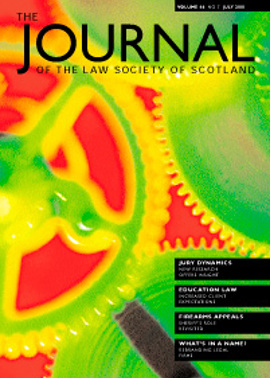Europe
ECJ rules on right to paid annual leave
The European Court of Justice ruled on the case of BECTU v the Secretary of State for Trade and Industry (C-173/99) on 26 June.
The Court judged that Community law prevents the Working Time Directive (Directive 93/104) being implemented in UK law in such a way as to make continuous employment with the same employer for a 13-week period a precondition for paid annual leave. The Court indicated firstly that the Directive is intended to improve the working conditions of all workers, and as such cannot exclude a whole section of working society.
The Court also referred to the European Charter of the Fundamental Social Rights of Workers which contains the right to paid annual leave.
As was reported in the Journal Europe pages in March, Advocate-General Tizzano, in his opinion on the case, indicated that he considered that not only the Charter of Social Rights of Workers, but also the recently adopted European Charter of Fundamental Rights, would operate to prevent the implementation of the Directive as carried out by the UK. This was the first statement applying the Charter following the long-running debate on its actual legal status.
EU Directive could outlaw sexual harassment at work
On 11 June 2001 the Social Affairs Council agreed a Common Position upon a Commission proposal which aims to outlaw sexual harassment in the workplace (http://europa.eu.int/eur-lex/en/com/pdf/2001/com2001_0321en01.pdf). The proposed Directive deems sexual harassment to be a form of discrimination on the grounds of sex and employers could find themselves liable if they fail to ensure that their working environment is free from harassment. The proposal states that the most effective sanctions under national law should be imposed in instances of discrimination, e.g. compensation. Sexual harassment, will encompass “any form of verbal, non-verbal or physical conduct of a sexual nature”, is intended to include such things as sexual jokes and posters of naked women. Member States would have to introduce measures to protect victims and witnesses from dismissal or any other adverse treatment. These measures could include taking judicial action against employers. If adopted, Member States would have to implement the Directive by 31 December 2002.
Equal Pay Criteria Considered
In the case of Brunnhofer (C-381/99) the ECJ considered once again the issue of equal pay for men and women and, more particularly, the criteria which should be applied in deciding whether there is equality in remuneration in a particular situation. Ms Brunnhofer was on the same grade as a male colleague, and earning the same basic salary. However, her male colleague received a monthly bonus which was higher than that which she received. She claimed that there was discrimination on the grounds of sex, which the employer countered by saying that the bonus reflected both the greater responsibilities of the male employee and the fact that the quality of his work was deemed to be better than hers. The Court confirmed the position that monthly bonuses can be considered as pay within the scope of the Treaty and are thus subject to rules on equality of pay. It also went on to state that difference in pay between colleague in the same job category and subject to the same collective agreement, does not in itself indicate that they are both performing the same work, or work to which equal value is attached. However, in the case of work paid at time rates, a difference in pay at the time of appointment cannot be justified by factors which become known only after duties are taken up – such as individual work capacity or effectiveness of the work of a specific employee compared with that of a colleague.
Rights of pregnant women employed
Temporary contracts
Advocate-General Tizzano considered the position of a pregnant woman whose temporary contract is not renewed by her employer, in his opinion in the case Jiménez Melgar (C-438/99) issued on 7 June. Ms Jiménez Melgar had been employed on a number of short term contracts which had been renewed over a period of time, before termination at the end of one of the contracts. The Advocate-General considered the application of Directive 92/85, which amongst other things, prohibits the dismissal of pregnant workers unless otherwise justified (article 10). The Advocate-General put forward his opnion that article 10 of directive 92/85 applies to fixed term as well as to permanent contracts. However, even where a fixed term contract is one of a series of successive contracts, failure to renew the contract when it expires does not in itself breach article 10, unless the non-renewal is motivated by the pregnancy. In that case, there would be direct discrimination on the grounds of gender, forbidden under directive 76/207.
All ECJ judgments and Advocates-General opinions can be found at the European Court of Justice website – www.curia.eu.int.






